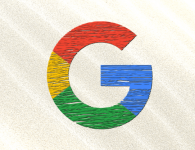

Google is ramping up its efforts to make the SMS message obsolete. If you live in the UK or France, you may have noticed a prompt in your messaging app on Android phones lately – it introduces what could be the future of mobile messaging. Google has rolled out Rich Communications Services (RCS) messaging in the two European countries, the company says it wants to bring “broad availability” to all Android users by the end of 2020.
“I hate to use the phrase but RCS is an SMS upgrade,” says Nick Lane of Mobilesquared, a mobile market research company, which estimates that there’ll be more than a billion monthly active users of RCS messaging by the end of the year, up from 311 million users at the end of June 2019, and 3.2bn by 2023. “That’s doing RCS a disservice, but it brings all these rich features and functionalities into messaging.”
Lane compares it to WhatsApp or iMessage, with everything from better photo or video sharing within messages to typing indicators and read receipts available – while Google say it’s a more modern way to communicate. “We’ve been partnering with the ecosystem since 2016 and have teamed up with over 43 carriers with the objective of upgrading the default messaging system for users which had been based on SMS and is quite outdated,” says Sanaz Ahari, director of product for consumer and communication offerings at Google. “We want users to use RCS, giving them the modern messaging system they expect.”
However, it’s been a hard task: those 43 mobile phone operators represent about five per cent of the 800-odd working worldwide. “While we’ve been excited by the progress we’ve made, the reality is the progress hasn’t been sufficient from an end-user perspective,” Ahari says.
While she wouldn’t be drawn into what the complications in the rollout, which has been more than a decade in the making, third-party observers are more frank. “A fragmented ecosystem, and the system integrations and updates necessary to provide a universal experience have created challenges in rolling out the technology,” says Ramy Riad, director of 3CInteractive, a mobile marketing company. The GSM Association, a mobile industry body, chose to adopt RCS as the replacement for SMS back in 2008, and Google even bought an entire company, Jibe, in 2015, to try and make RCS a thing.
“It’s trying to get 850 operators on something, which is almost impossible,” agrees Lane. “You’ve got some that are quite forward thinking, others that are way behind the curve. Then it depends on whether the market is developed or developing.”
Those who have adopted the system most fervently, such as Vodafone in the UK, have done so because they see the opportunity to monetise smarter messaging, Lane says. RCS messaging allows users in theory to do everything from plan a train journey to buying the ticket, all within a single message thanks to “rich cards” – slightly more interactive messages, akin to a boarding pass on an app on your phone. Businesses like it because “you’re not sending the user to various other sites and it’s not a fragmented journey,” says Lane. “It should be a seamless journey within the one channel, and that’s probably one of the most attractive things for RCS.”
However, phone carriers don’t like it because it requires investment to redesign technical systems – right at a time when large amounts are being ploughed into preparing carriers for 5G. (Google’s Ahari claims “all the carriers we work with globally are very eager to move the messaging experience from SMS to RCS”.)
The most in-depth upgrade to RCS systems would cost phone operators millions, says Lane, at a time when SMS messaging is still sufficient for many, or they just use third-party services like WhatsApp. A survey by 3CInteractive of RCS users said that fewer than four percent of respondents actively preferred plain-text SMS over RCS messages.
That makes sense: for years, Apple users have lorded it over Android users because of the smart messaging capabilities of iMessage. At the moment, RCS is not end-to-encrypted – this has been one of SMS’s biggest criticisms. Across mobile messaging, end-to-end encryption has been widely adopted in recent years. iMessages, WhatsApp – and the Signal app all use the encryption method, which stops third-parties accessing the content of messages – by default.
But Android devices make up the largest share of the phone market. If any single company has the power to make RCS messaging the default approach, Google has the reach to get in on millions of handsets. “Mobile network operators (MNOs) are facing significant external pressure from over-the-top messaging services [like Google and WhatsApp] to deploy an enhanced native messaging experience for their subscribers,” says Riad. “RCS enables MNOs to operate, and RCS business messaging enables the MNOs to monetise the investments needed for the channel.”
The challenge and cost comes from ensuring compatibility with all networks and mobile phone models. “There are real deep technical challenges in doing this across many devices and firmware versions,” says Drew Rowny, Google’s product lead on messages. “Historically, it’s required a deep collaboration between who makes the app on the phone and the carrier. The technological hurdle we’re excited to have made progress against is doing that effectively without having as deep a technical integration.”
Rowny says that it’s been done because implementing deep technical integrations would take time, while Lane says it’s been done in this way (via an app on users’ phones) to cut out the operators entirely. “Google has said we’ll launch our own service, and it’ll get RCS on devices of users on O2, Three and EE,” he explains. “It’s giving them the kick up the arse they need. It’s not something where it’s is RCS is going to happen? RCS is happening. It’s not going to go away now. It is the future. It’s just when does it become the future, when does it become a reality for everyone?”
The move into the UK and French markets has been a test for Google, and it says it’s deliberately taken it slowly to ensure it rolls things out correctly without interrupting normal service for users. “We’ll continue to partner with the ecosystem as they bring their own capabilities online, and be able to seamlessly manage those,” says Ahari.
“The UK is now officially a GOLD market [as defined by the GSMA] because Google is plugging in the gaps, as is France,” says Lane. “It’s going to roll out in ten other European markets, we believe in the next few months. We’re looking at who has launched in Europe and where Google could go.” Lane pegs the US, Canada, Mexico, Germany, Norway, South Africa, South Korea and Japan as next in line for RCS adoption, with a further 26 markets with near-total coverage by the end of 2020. After a long wait, RCS could be here – and quicker than you expect.
Google wouldn’t confirm where it would roll out RCS next, but did point out it wants widespread adoption of the system now it has developed it and proven it can be pushed out to users without difficulty. “We don’t want end users to think about what carriers or devices they have,” says Ahari. “What we want is for every single Android user to have a rich messaging experience out of the box on their phone.”
More great stories from WIRED
🍔 World-class chef rates the best vegan burgers in the UK
😡 TikTok is fuelling India’s deadly hate speech epidemic
🍫 The foods you’ll really need to stockpile for no-deal Brexit
♻️ The truth behind the UK’s biggest recycling myths
🤷🏼 How is the internet still obsessed with Myers-Briggs?
read more at https://www.wired.co.uk/ by Chris Stokel-Walker
Tech









